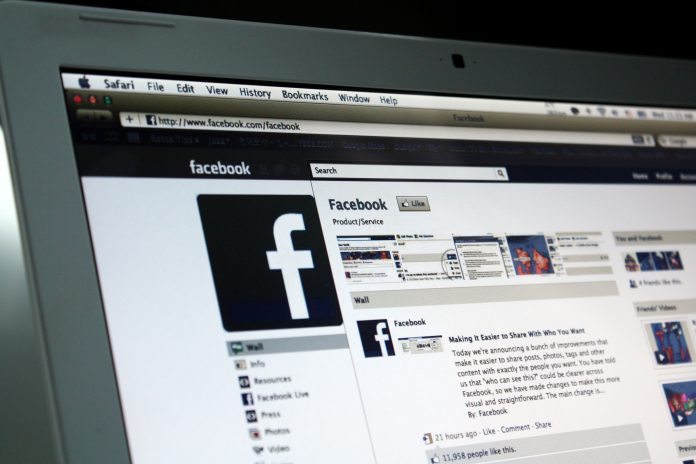Suzanne Trainer, Head of Marketing at Beacon, explains what fake clicks are, why most ad fraud committed on Facebook is click related and provides possible solutions for companies who find themselves falling victim to ad fraud on the social platform
Facebook ads – also known as ‘paid social’ – have become a highly lucrative channel for businesses both in the B2C and B2B spaces.
Unfortunately, however, the vast growth of the market has led to a huge increase in the prevalence of ad fraud and fake clicks in the advertising ecosystem.
Out of more than two billion Facebook users, an estimated 270 million are fake or duplicated user accounts – almost the equivalent of the US population.
Fraudsters are using these accounts to click ads, which negatively affects advertisers, both by wasting their ad budgets and damaging their brand reputation.
With this in mind, advertisers need to be aware of what exactly fake clicks are on Facebook, and the potential risk that they pose to their firm’s advertising budget and revenue.
What are fake clicks on Facebook?
The majority of click fraud on Facebook comes in the form of fake clicks or invalid clicks.
These are most likely to be clicks from:
- Automated traffic, such as bots or web crawlers.
- Click farms, designed to drive up popularity and traffic of pages and sites.
- Competitors looking to deplete your advertising budget.
- Non-interested parties, such as people who are only browsing or accidentally click on your ad.
It is often the case that genuine adverts are aimed at defrauding potential customers, and these usually feature products like cryptocurrency, health products or sign ups for fake diet programs.
One such example, where counterfeit goods and diet pills were promoted, used a practice called ‘cloaking’, which involves the true destination of the link being disguised in the ad, with one version of the landing page being shown to Facebook’s systems and a different version to Facebook users.
In response, Facebook filed a lawsuit against the culprits, a Hong Kong-based company, for using its ads to deceive people into installing malware.
Most ad fraud on Facebook is click related
Back in 2012, Michael Tinmouth, a social media marketing consultant, ran Facebook advertising campaigns for a number of small businesses, including a luxury goods firm.
He contacted BBC News when he became concerned about the fake likes and profiles appearing on those campaigns, which led tech correspondent Rory Cellan-Jones to set up a small business – that did not actually exist – to check out how accurate Facebook’s advertising campaigns were.
Using the company name Virtual Bagel, Cellan-Jones created an initial advert using a small spend of just $10, and within 24 hours this had attracted more than 1,600 likes for the page.
Tinkering with his settings, he targeted countries like the US, the UK and India, with the likes continuing to rise, and by day four he had over 3,000 people liking – and following – the fake business’ page.
The experiment was designed not only to show how easy it is to set up a fake company on Facebook, but also to shine a light on the abundance of seemingly fake clicks on the platform that are ‘liking’ products that do not actually exist.
Ad fraud on Facebook is not new
There is further evidence that ad fraud is not a new phenomenon on Facebook and other popular advertising platforms.
When science video blog Veritasium posted its ‘Facebook Fraud’ video in 2014, for example, it got many marketers concerned about how much ad and fake click fraud there is on Facebook.
The video highlighted several cases where brands or businesses were paying for Facebook ads in order to generate likes, but were finding that the percentage of engagement with those likes was almost non-existent.
However, in an interview, Acquisio co-founder and EVP Marc Poirier said that generating likes should not be the only goal of advertising on Facebook.
He went on to say that marketers need to manage their spend on the platform as a function of real business metrics, and if they cannot measure sales or conversions, they should at least make sure they manage bids and budgets as a function of user engagement.
Poirier also asserted that only managing likes generates poor results, due to the large numbers of fake spam profiles that are there only to power paid likes sold by third-party websites.
The way that this works is simple:
- Profile JoeBloggs is paid by a third-party website, or is created by the seller, to like 50 different pages from brands or businesses that have paid the third-party website for it.
- They need to disguise that they are clicking on specific websites for which they have been paid, so Facebook cannot determine if they are genuine or fake.
- As a way of disguising their activity, they click on other pages at random and like them to dilute the percentage of paid-for likes on their Facebook profile.
- Because they click randomly, without ever reading or engaging with what they are liking, many followers are added simply due to a spammer/fake profile trying to disguise their paid activity.
Will Facebook issue refunds?
For business owners who feel that they have been cheated by Facebook as a reliable means of advertising, the chance of recouping their losses are decidedly doubtful.
After one of his clients refused to pay for his adverts on the basis they had not reached ‘real people’, Mr Tinmouth asked Facebook to investigate the issue of questionable profiles.
The company told him that the majority of profiles were authentic and therefore refused to meet with him to discuss a refund.
In fact, the only time Facebook has admitted to issuing refunds is connected to its own lawsuit – mentioned above. The social media giant has also instigated a suit against a New Zealand-based platform it claimed was providing fake likes, views and followers to Instagram users.
There is a solution
Groundbreaking click fraud protection platforms ensure that when a bot is detected, the device fingerprint is added to their unique bot detection database. This database can be used to block bot impressions [for CMP] and clicks [for CPC] on Facebook campaigns. This can then be used to build regularly updated, custom-blended bot exclusion lists specifically for the client, giving them the maximum reduction in click fraud over time.
So, when it comes to advertising your products and services via Facebook, there are certainly those who are championing and developing solutions to mitigate against click fraud but there is still not much evidence of the social media giant taking truly meaningful steps towards tackling the vast amount of fraud and fake clicks on its advertising.












Good luck with that I’m just shutting all down and never using them again
I’m a nobody. Unknown developer promoting a free, unheard of 5 letter word game. Just bought the domain 2 days ago. It’s just a hobby that I got back into after being dormant for 6 years. I say this because, I can’t have any adversaries, because I’m unknown and free word games isn’t a competitive space like selling health supplements.
I can assure you, with provable data, as I have google analytics plus my own api tracking page entry, that Facebook is defrauding it’s advertising customers by charging for clicks that never occurred. And not a small discrepancy, but a massive discrepancy.
In just 1 day, Facebook showed 446 clicks, targeted to Philippines so their only 1 to 2 cents each, while Google analytics, plus my own api tracking, confirms only 30 people only visited the site. So there is some sort of fraud happening. I’m continuing the ad campaign to collect more data, at $5 a day, it’s worth it to expose this. Email me for factual info if you’re interested.
Hi Randall, I am suspicious that Facebook is doing the same to me. I would appreciate any info you have that would help me to investigate my own campaign. best wishes, James